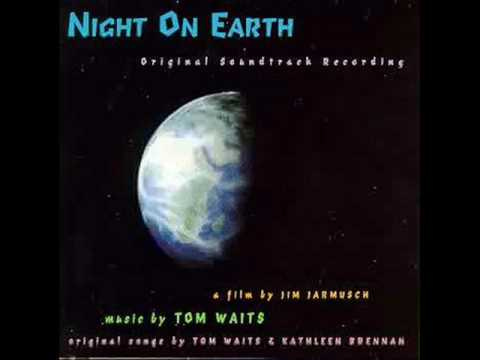Every Tom Waits Song is an email newsletter covering just that, in alphabetical order. Find more info here and sign up to get it sent straight to your inbox:
And here we are, two songs later, back at Night on Earth.
One reason I, and I'm guessing many other Waits fans, haven't spent much time with this soundtrack is there's only two proper “songs” on it. His previous film soundtrack, for Francis Ford Coppola's otherwise forgotten 1982 film One from the Heart, came with a full album's worth. Sometimes shlocky, sometimes not performed by Tom himself, but still: new Waits songs. We'll hit the first of those later in the "B"s. Night on Earth had only two songs, reconfigured a few times each, and supplanted by instrumental pieces like the one we recently looked at.
But today, we get one of the two quote-unquote "real" songs, "Back in the Good Old World." Or maybe I should say it's one of two-and-half "real" songs, as the lyrics will later get put to different music (but a similar name) for "Good Old World."
In Lowside of the Road, Waits biographer Barney Hoskyns describes how this song(s) turned into an entire soundtrack:
Though Jarmusch had originally put in a modest order for two themes, when Waits played the waltz-time “Good Old World” over the phone the director flipped and asked him to underscore the whole film. Jarmusch was so enthused he flew to California to sit in on some of the recordings.
Jarmusch found Waits holed up in a funky recording studio that he’d discovered in the small town of Cotati—a converted chicken ranch called Prairie Sun. With Biff Dawes engineering and Francis Thumm serving as keyboardist and co-arranger, Waits worked on the Night on Earth music with a new group of Bay Area musicians that included guitarist Joe Gore, cellist Matt Brubeck, bassist Clark Suprynowicz, accordionist Josef Brinckmann, and pianist/percussionist Mule Patterson. The session group also included Ralph Carney, who’d recently moved to Oakland from Brooklyn and knew Jarmusch from his native Ohio. Carney’s saxes and other woodwinds were all over Night on Earth; on certain tracks he even experimented with flute and pan pipes. “There were a “couple of things I did that were too hippie for Tom,” he says. “He was like, ‘I hate flute!’ Jim would say he liked something and I could see Tom champing at the bit.”
“It was a fairly egalitarian situation, though Tom was definitely leading things,” recalls Clark Suprynowicz. “I really think I learned something from the experience, because Tom’s way of directing the ensemble was very much as a theatre person. He would go into the recording booth and listen back to a take we’d done of something. Then he’d come out and look at Ralph and say, ‘It just sounds too friendly! Can’t we make it more antisocial?!’” After an early take of “Good Old World (Waltz),” Waits emerged from the booth and began dragging himself around the studio like he had a club foot. “Boys, boys!” he implored the musicians. “It’s gotta limp a little bit!”
"Back in the Good Old World," though, doesn't limp. This is the comparatively uptempo rendering of the lyric, presumably written after the original “Good Old World” Waits played Jarmusch (hence the “back in” prefix). It’s a real showcase for accordionist Brinckmann and those Carney sax-and-woodwinds Hoskins mentioned. Is it a secret masterpiece? Probably not. But if you love hearing Tom bellow over broken-down carnival music - and who doesn't? - there's a lot to enjoy.
Update April 2022: Aforementioned guitarist Joe Gore shares a few thoughts about this song:
Night on Earth was recorded like an old-school soundtrack, with all the musicians playing at once and no overdubs. It was my very first session with Tom — I was thrilled and terrified. I was equally overwhelmed by meeting and working with musicians I admired so much, like Ralph Carney and Matt Brubeck, who would go on to become great friends and frequent collaborators. (I miss Ralph terribly.) Plus Jim Jarmusch flew out from New York for the session, so I was even more blown away. Much of that score is based on “Good Old World.” While we played that song from charts, I quoted the melodies a lot during the improvised pieces, like “Chromium Descensions.”


